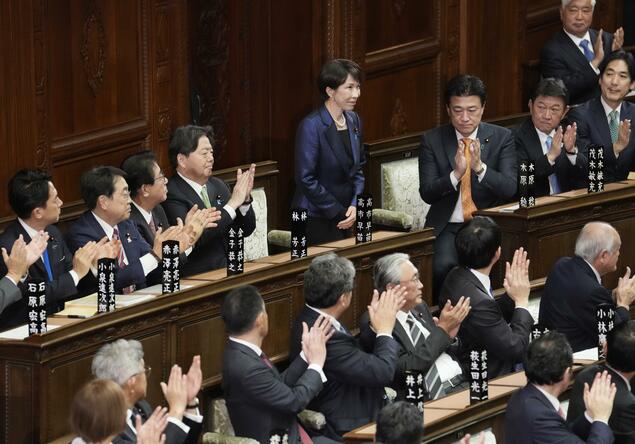 Economy
Economy

 |
| For the first 11 months, net foreign selling value stands at nearly VNĐ89.8 trillion. — Photo tapchichungkhoan.ssc.gov.vn |
HÀ NỘI — VNDirect Research reports that exchange-traded funds (ETFs) in Việt Nam continued to experience significant net capital outflows in November, totalling over VNĐ1.34 trillion (US$52.8 million).
This brings the cumulative net capital outflows since the beginning of the year to over VNĐ20.3 trillion.
Last month, the outflows from ETFs were primarily driven by significant withdrawals from funds such as VanEck Vector Vietnam ETF (VNĐ641 billion), DCVFM VN30 ETF (over VNĐ300 billion), Xtrackers FTSE Vietnam ETF (VNĐ214 billion) and DCVFMVN Diamond ETF (VNĐ203 billion).
By contrast KIM Growth VN30 ETF and SSIAM VNFIN Lead ETF recorded net inflows of over VNĐ34 billion and VNĐ16 billion, respectively.
Foreign investors continued to increase their net selling activities in November, with total net sales exceeding VNĐ11.8 trillion. ETFs accounted for approximately 11.3 per cent of this total net selling value.
For the first 11 months, net foreign selling value stands at nearly VNĐ89.8 trillion.
In November, foreign investors sold a net value of VNĐ12 trillion on the Hồ Chí Minh Stock Exchange (HoSE), VNĐ342 billion on the Hà Nội Stock Exchange (HNX), while making net purchases of VNĐ460 billion on the UpCOM.
The top stocks that foreign investors heavily sold off in November include Vinhomes (VHM), SSI Securities Corporation (SSI), Masan Group (MSN), HDBank (HDB) and Vietnamconk (VCB). Conversely, stocks that saw significant net buying from foreign investors in November were Vietinbank (CTG), Masan Consumer Corporation (MCH), Ha Do Group JSC (HDG), Techcombank (TCB) and Petrovietnam Fertilizer & Chemicals Corporation (DPM).
Since the beginning of November, foreign investors have been increasing their selling activities amid a resurgence in the dollar index following Donald Trump's re-election in the US presidential election.
Market concerns have risen regarding the potential import tariff hikes under the new administration, which could lead to increased inflation in the US in 2025, potentially limiting monetary policy flexibility and requiring caution in the US Federal Reserve (Fed)’s interest rate reduction trajectory.
During this period, US Government bond yields have also surged from 4 per cent to nearly 4.5 per cent, widening the gap with Vietnam's 10-year Government bond yields.
However, by the final week of November, after President-elect Donald Trump nominated Scott Bessent as the new Secretary of the Treasury, financial markets responded positively as investors perceived Bessent's moderate views favourably.
There is optimism that he might influence Trump towards a more lenient approach on tariffs.
With signs of a cooling dollar index, the retreat of 10-year US Government bond yields and indications of foreign investor capital returning to the Vietnamese market, the financial landscape is evolving. — VNS




